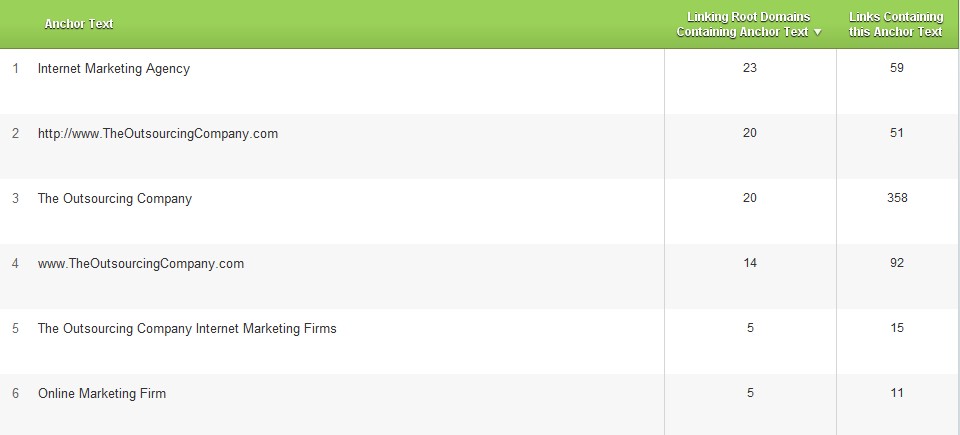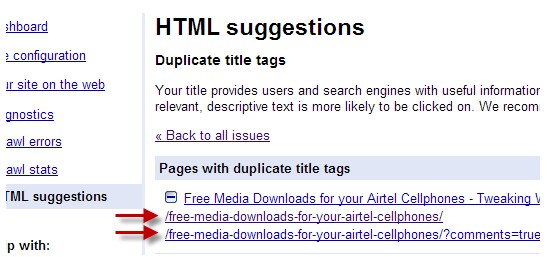Imagine you have to drive to a small town you’ve never been to and you don’t have a map, GPS device, Internet access and can’t ask people for directions. It will be really hard, won’t it? That’s how most people do Search Engine Optimization (SEO). They don’t have maps to see where they are, where they’re going to and how to get there.
Well, as you can imagine, that’s not very smart. I’ll show you how you can analyze your website and a lot of different factors to discover what areas of SEO you need to work on to be #1 on Google.
Number of Indexed Pages

Why It’s Important: You want the search engines to index as many pages of your site as possible.
How You Can Check this Metric: You can use the SEOQuake Firefox add-on to see how many of your pages are
Google indexed and you should compare your number to your top 10 Google rankings for the keyword you’re going after.

What to Do About This: If you find that your top 10 competitors have a lot more indexed pages than you, you should create more pages of optimized content. They could be blog posts, articles, resources or whatever your visitors want.
Number of Incoming Links
Why It’s Important: You want a lot of great incoming links.
How You Can Check this Metric: You can use SEOQuake to see how many incoming links you and your top 10 competitors have.

What to Do About This: If you have fewer links than your competitors, you should work on getting more.
Link Quality
Why It’s Important: Link quantity is important, but link quality is way more important. You want links from high-quality sites and sites that are related to yours.
How You Can Check this Metric: Use Open Site Explorer to find out who’s linking to you and who’s linking to your top 10 competitors.

What to Do About This: If your link profile is worse than your competitors (i.e. their links are earned based on merit and come from quality sites, and your links come from free directories, link farms and other low-quality link sources), you need to revert this trend. Learn from your competitors and emulate the good things they do.
Anchor Text
Why It’s Important: When you’re trying to rank for “sporting goods” a link like “check out our sporting goods” is much more valuable than one like “for sporting goods click here“. You want your keywords in the anchor text of your links.
How You Can Check this Metric: Use Open Site Explorer.

What to Do About This: If most of your incoming links don’t contain your keywords, start a link building campaign and get keyword-rich text links. Also, don’t forget that internal links are very important, and you have full control as far as how you interlink pages within your site, so be smart and use your keywords here.
PageRank
Why It’s Important: The higher your PageRank, the more link juice you have to distribute to your pages and get them indexed and ranked high.
How You Can Check this Metric: The SEOQuake bar can help you check this metric for your site and your top 10 competitors.

What to Do About This: If your competitors have a higher PR than yours, work on getting links. When external sites link to you, they pass PageRank to your site. Also, watch your PageRank distribution. Assign the no-follow attribute to links that point to pages you don’t care about, such as Terms of Use, Privacy Policy, etc.
Site Age
Why It’s Important: The older your site, the higher your chances to rank at the top. Especially on Google.
How You Can Check this Metric: The SEOQuake bar can help you check this metric for your site and your
top 10 competitors.

What to Do About This: You can always buy an older site, but you can’t change how old your site is. Even if you can’t do anything about this, it’s important to check this metric, because if the top 10 sites on Google are 15 years old and yours is one year old, you know that you’ll have to work hard in other areas of SEO to make up for being so “young”.
AllInAnchor
Why It’s Important: You need to know if your incoming links’ anchor texts are optimized for your keywords.
How You Can Check this Metric: Use NicheWatch. This is a great blog on how to use NicheWatch.

What to Do About This: If your AllInAnchor ranking for a given keyword is lower than your
regular ranking for that keyword, you need to work on getting links with
your keyword as the anchor text.
AllInTitle
Why It’s Important: You need to know if your page titles are optimized enough.
How You Can Check this Metric: Use NicheWatch.
What to Do About This: If your AllInTitle ranking for a given keyword is lower than your
regular ranking for that keyword, you need to optimize your page title and add your keyword to it.
AllInText
Why It’s Important: You need to know if your page content is
optimized enough.
How You Can Check this Metric: Use NicheWatch.
What to Do About This: If your AllInText ranking for a given keyword is lower than your regular ranking for that keyword, you need to optimize your page content and add your keyword to it.
Duplicate Content
Why It’s Important: Internal duplicate content can kill your rankings. You need to detect it and eliminate it. This is a great post on detecting and fixing duplicate content issues.
How You Can Check this Metric: Use Google Webmaster Tools.

What to Do About This: Write unique title, meta description and meta keywords tags for all your pages.
Website Architecture Issues
Why It’s Important: You need to make sure your website is built right and search engines can spider it.
How You Can Check this Metric: Read this blog post on on-site SEO and use SEO Browser to see your site the way search engines see it. Make sure they can spider it and follow your links.

What to Do About This: Fix any website architecture issues that you find.
Keyword Cannibalization Issues
Why It’s Important: When several pages on your site are competing for the same keywords, your rankings can suffer. You need to concentrate all this optimization on one page instead.
How You Can Check this Metric: Do this Google search:
site:yoursite.com “keyword”

Google will show you what pages of your site are the most relevant for a given keyword and will sort them in order of relevance.
What to Do About This: If you have several pages that are optimized for a keyword, pick one and from all the other pages link to that one page using your keyword in the anchor text. This is a great article on keyword cannibalization.
On-Site Optimization Score
Why It’s Important: One of the best ways to rank high is to take a look at the 10 websites that rank at the top, find patterns among them and replicate them.
How You Can Check this Metric: Although this can be done manually, it’s a lot more effective to use a tool. IBP is my favorite.

What to Do About This: Run the Top 10 Report on IBP. The software will give you an on-page optimization score and will tell you what you need to do to improve it.


